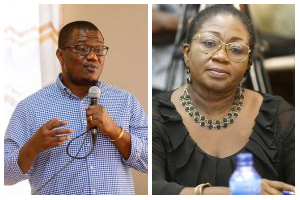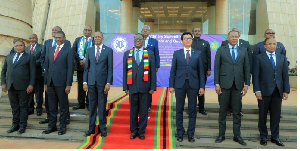Professor Douglas Boateng, a renowned industrial engineer, says the government should make engineers an integral part of the country’s strategic development plan to help speed up economic and social progress.
He said other sectors and professions had roles to play but engineers must lead the charge towards industralisation and long-term development.
He noted that countries like Korea, China, Germany, India, South Korea, and South Africa were “transformed” by engineers, therefore, practitioners in Ghana should take up the challenge.
Prof Boateng was speaking at his inaugural lecture at the Ghana Institution of Engineering on the theme “Engineering, Industrialisation, AfCFTA, and Strategic Sourcing: The Inextricable Links”.
Stressing the importance of industralisation in economic transformation, he urged the government to “revisit its plans and bring engineers into core decision making processes”.
“Ghana can become one of the most industralised countries if we make engineering the core of our long-term development planning…We are very good at putting plans together but very bad at implementing the plans…If we make engineers the core, we can make Ghana the country we desire,” he stated.
Prof Boateng said industralisation was not only about building factories but “every sector of the economy should be industralised with engineers playing a key role.
“The African dream is in our own hands, but we must be confident in our ability to excel… We excel when we go to other countries, but I don’t know why when we come back, the issues that we want to address take so long…it’s because of the lack of our own confidence. The African industralisation drive, I believe, is down to engineers,” he said.
Touching on initiatives such as African Continental Free Area (AfCFTA), he said countries must “think beyond” local borders, and engineers supported to add value to local products to generate more revenue.
Prof Boateng urged African countries to address peculiar challenges like over reliance on imports, adding that policy makers should not be “flattered” by economic indicators put out by international agencies.
He expressed concern over the “slow progress” in Ghana and the African continent, saying it was time to “change lanes” and redirect the path to job creation, industralisation and long-term development.
Highlighting other themes, he called for the establishment of a Ministry of Industralistion, and proposed that the current Trade and Industry Ministry could be modified to attain that mission.
Prof Boateng, also the Board Chair of the Minerals Income Investment Fund (MIIF), said he would establish an Industralisation Scholarship Fund with seed capital of GH¢30,000 to support students who took up industry-relevant engineering projects.
He urged more youth to take up engineering courses and described the lecture series instituted in his honour as “a unique initiative”.
Mr Kwabena Bempong, President, Ghana Institution of Engineering, ranked the maiden lecture series as “a significant milestone in the journey towards excellence and innovation in the field of engineering.”
He praised Prof Boateng for being a “leading voice in the field of engineering”, adding that the lecture series was to “recognise and promote” excellence in the profession, which remained the backbone of industrial and national development.
Click to view details



Business News of Monday, 3 June 2024
Source: GNA

















